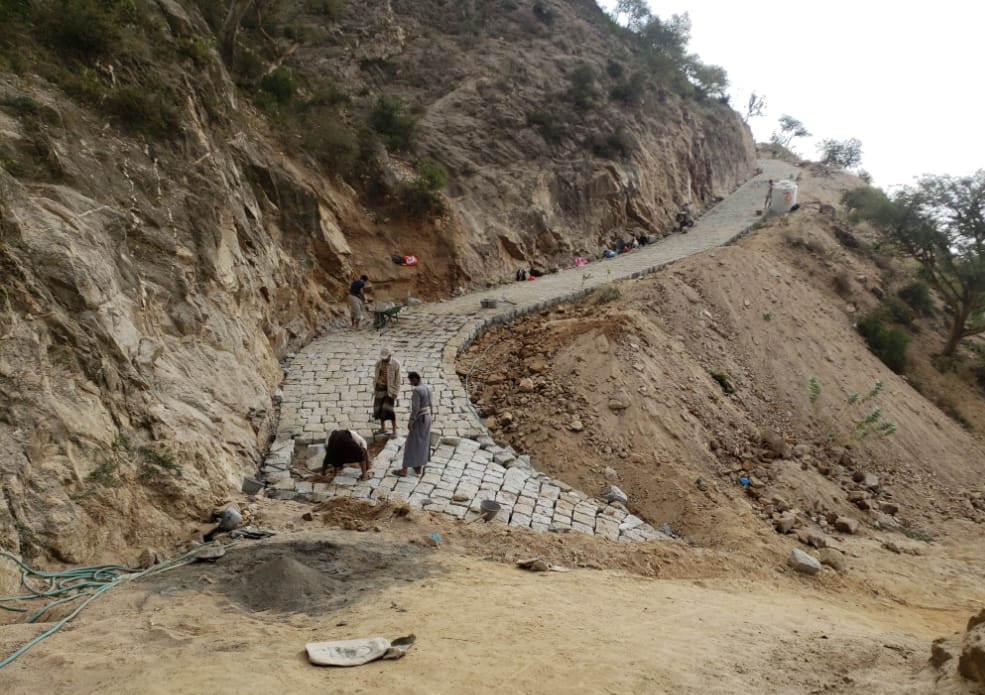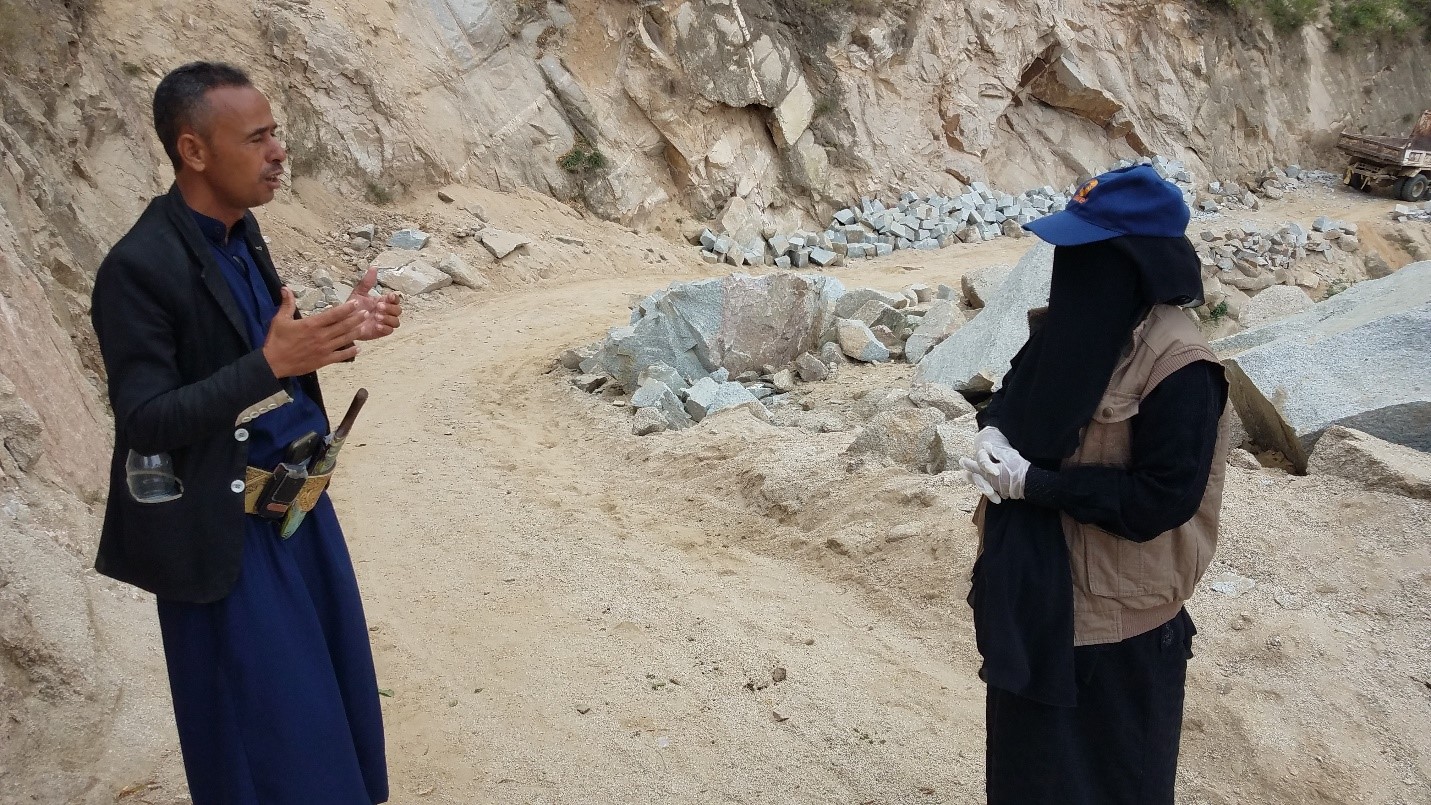Local residents of Bani Jaber village in Hajjah Governorate which is located in north-western Yemen’s Kuhlan Ash sharaf district, have, for years, been suffering from difficulties in moving from one area to another one. Life in such remote villages is extremely harsh. The roads are dangerous and it takes hours and great effort to reach the nearest markets and health centres.
Roads make a crucial contribution to economic development and growth and bring important social benefits. They are of vital importance to make a nation grow and develop as well as to keep connected. In addition, providing access to employment, society, health and education services makes road networks critical in fighting against poverty. Roads open up more areas and stimulate economic and social development. Therefore, road infrastructure is considered to be one of the most important public assets in any context.
In Yemen, civilian infrastructure such as roads and markets continue to be affected since the beginning of the war. Due to the rugged roads and the difficult movement of people in Bani Jaber, locals took the initiative to pave the local road, but could not continue and complete because of the high prices of the materials and the challenge of bringing the needed material to the village.
And yet, the roads were so unsafe that drivers from other districts would refuse to come to the village to help take a patient or a pregnant woman to the nearest hospital, regardless how much money they were offered.
“The mountainous roads are very rugged and people were afraid of using vehicles along the roads,” says Mohammed Jaber, one of the locals of Bani Jaber. For many years, locals had no choice but to transport food and essential items by donkey, on their own backs, or by motorbike if possible.



